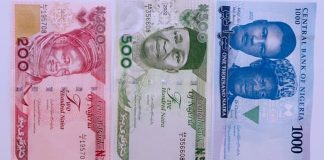Nigerian businesses spent N1.22tn on consumer goods imports in 2021, according to the Foreign Trade Statistics of the National Bureau of Statistics (NBS).
This was a 109.25 per cent increase from the N584.41bn spent on importing consumer goods in 2018. The consumer goods imported into the country are categorised as durable, semi-durable and non-durable.
In 2018, Nigeria spent N148.52bn, N88.83bn and N347.06bn on imported durable, semi-durable and non-durable consumer goods respectively. In 2021, Nigeria spent N269.78bn, N144.42bn and N808.69bn on imported durable, semi-durable and non-durable consumer goods respectively. The data shows that Nigeria spends more on importing non-durable consumer goods.
The Secretary to the Government of the Federation, Boss Mustapha, last year during an exhibition of made-in-Nigeria products in Abuja, said the intervention of the Federal Government in developing local industries had resulted in the growth of local businesses.
As a result of this, he said Nigerians proudly use products branded made-in-Nigeria, adding that this would impact the nation’s Gross Domestic Product, generation of employment opportunities and reduction in the cost of production.
He said, “The intervention of the Federal Government of Nigeria in developing local industries has resulted in a boom in the growth of local businesses. Local production of hitherto imported products is beginning to gain grounds that I make bold to say that the materials produced locally can compete favourably with the imported ones.
“Nigerians now proudly use products branded made-in-Nigeria. This development will no doubt attract several benefits to the country including the increase in its Gross Domestic Product, generation of employment opportunities and reduction in the cost of production.”
The Minister for Industry, Trade, and Investment, Adeniyi Adebayo, in November last year, urged Nigerians to patronise made-in-Nigeria goods, adding that the Federal Government had implemented several policies and programmes through the ministry to reposition MSMEs as the engine room for wealth creation, economic transformation and development in the country.
He noted that the patronage of locally made products would create more jobs, reduce poverty and also boost the development of Micro, Small and Medium enterprises across the country.













